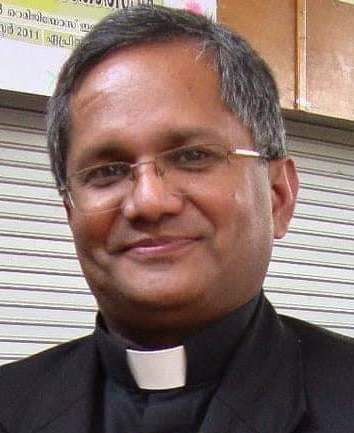Mahatma Gandhi, the Father of the Indian Nation and apostle of non-violence, was one of the most influential figures of the 20th century. Through his unconventional leadership and adherence to truth and non-violence, he fought the mighty British Empire and won independence for India in 1947. One of the most striking features of his leadership was his close affinity and identification with the ordinary people he represented. He led with his heart of compassion rather eloquence and empty slogans.
A few weeks prior to India's Independence Day of 1947, Gandhi was in Calcutta, working for peace and harmony among Hindus and Muslims. An emissary was sent to Gandhi by Jawaharlal Nehru and Sardar Patel. Before even opening the message, Gandhi asked the man: "Have you eaten any food?" When the man said "No", Gandhi personally served him food. And after that, Gandhi opened the message from Nehru and Patel which read: "Bapu you are the Father of the Nation. The 15th August 1947 will be the first Independence Day and we want you to come to Delhi to give us your blessing." After reading this, Gandhi said: "How stupid! When Bengal is burning, Hindus and Muslims are killing each other and I hear their cries of the agony in the darkness of Calcutta, how can I go to Delhi of the glittering lights? I have to stay here for the establishment of peace in Bengal and if need be, I have to give up my life for ensuring that there is harmony and peace." Then Gandhi sent a dry leaf that fell from a tree with the emissary as a gift for Nehru and Patel saying: "My friend, you are going back to Delhi. What gift can Gandhi give to Pandit Nehru and Sardar Patel? I am a man without power and wealth. Give this dry leaf to Nehru and Patel, as my first Independence day gift." Hearing this, the man shed tears and took that leaf which he later brought as a gift to Nehru and Patel.
This was Gandhi’s style of leadership – being one with the people and feeling their pulse, their struggles, and their needs and bringing joy and solace to them. Gandhi had no army and weaponry to fight the mighty colonial empire. But his simplicity and strong character were enough to scare them and make them give into Gandhi's demand to quit India. It was not his eloquence that led millions of people to follow him, but his sincerity and simplicity, his readiness to lay down his life for their cause. He would not wear a shirt because millions of his countrymen under the colonial rule did not have enough clothes to cover their nakedness. Is Gandhism still relevant today? Can today’s leaders follow at least some of his ideals?














